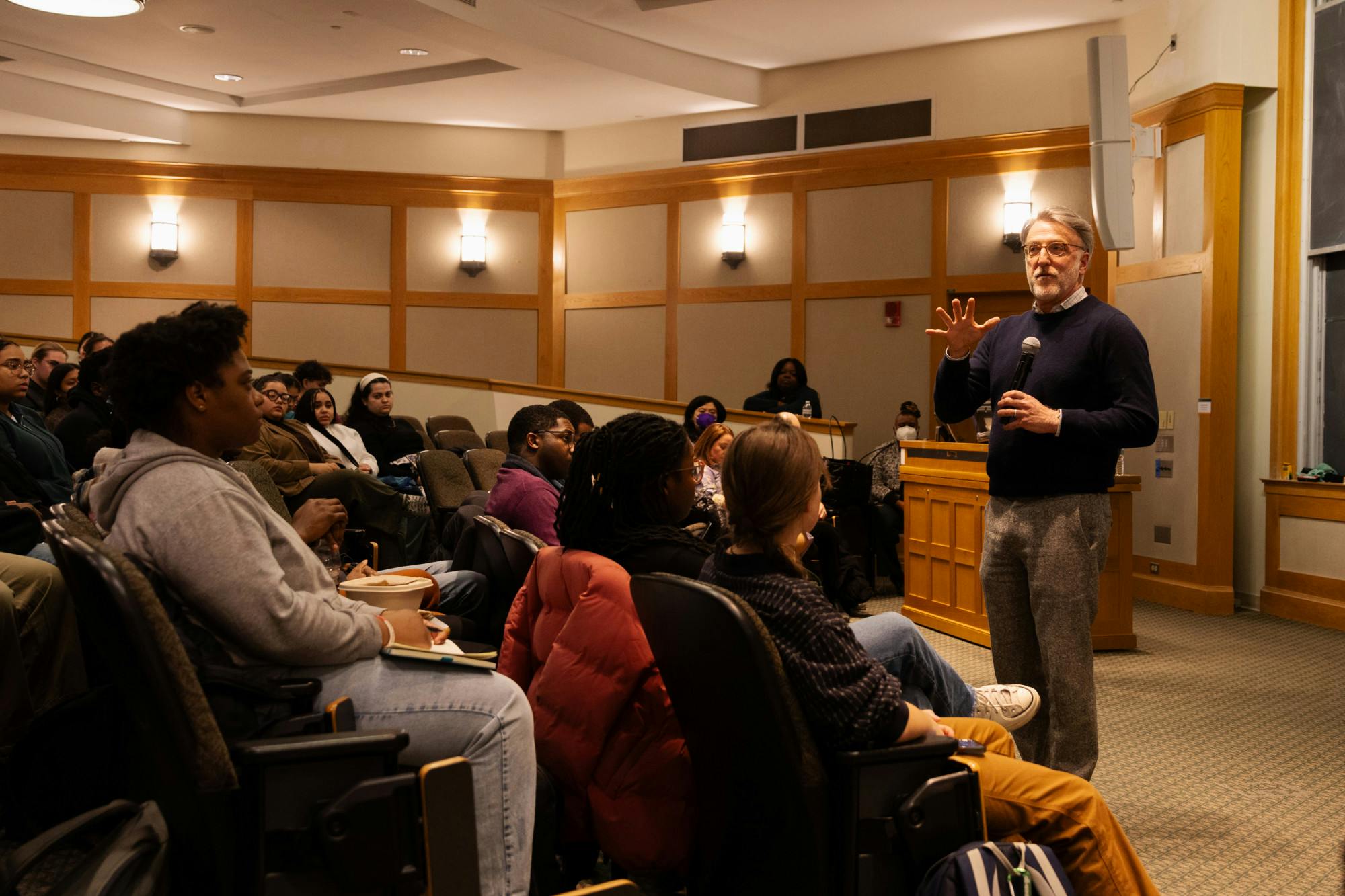Students exhibited mixed reactions to College President Sian Beilock’s Feb. 5 announcement that the College will reinstate the SAT and ACT admissions requirement beginning with the Class of 2029. This decision reversed the College’s test-optional policy implemented during the COVID-19 pandemic.
The decision followed a study conducted by economics professors Bruce Sacerdote ’90, Elizabeth Cascio and Douglas Staiger and sociology professor Michele Tine, which concluded that irrespective of a student’s background or family income, “standardized test scores are an important predictor of a student’s success in Dartmouth’s curriculum,” according to Beilock’s announcement.
Sabrina Ferrer ’27, a first-generation, low-income student and a refugee from Venezuela, stated that she “completely disagree[s]” with the policy change.
“I think that it’s unfair to reinstate the SAT/ACT when it’s clearly a disadvantage for people like me.”
In the announcement, Beilock stated that “Dartmouth admissions considers applicants’ scores in relation to local norms of their high school,” which Ferrer found to be an imperfect method.
“My school was high-income, and I was low-income, so I wouldn’t get the benefits of getting SAT/ACT fee waivers,” Ferrer said. “I think it is extremely stupid to [compare] my scores to [other students’ scores] in my school if I wasn’t going to get the same advantages as they got, like with private tutoring. I’m not going to get that.”
Ben Kleinman ’27 stated that his overall reaction to the reinstatement was “positive.”
“I think the way we view our applicants through a holistic approach improves the chances for people from lower-income communities that are less advantaged to really demonstrate that they are a good fit for the academic rigor at Dartmouth.”
Ryan Newsom ’26, also an FGLI student, stated that he had “mixed thoughts” about the reinstatement.
“[College officials] are claiming that [requiring test scores] will help with diversity and FGLI students who might [not be accepted] if they don’t take the test, but they kind of said a similar thing when they got rid of it initially, saying that it was affecting low-income groups.”
Testing was first waived for the Class of 2025 as a result of barriers students experienced to taking the SAT and ACT due to the COVID-19 pandemic. At the time, Dean of Admissions Lee Coffin had expressed that change was a “pause” rather than a permanent policy change.
Newsom also stated that he could “see the value in trying to get a quantifiable number as to how good a student is at testing,” but he said that he does not think the Dartmouth administration has fully justified the reinstatement.
Vagmin Viswanathan ’26 stated that the reinstatement “makes sense.”
“Looking at some of the research, the correlations with college GPA and success at college [to test scores], it makes sense that they brought [standardized testing back].”
However, Dara Casey ’25 said that this policy change “is definitely not a good thing.”
“I think it’s kind of telling the students here that were test-optional that they don’t belong here in a certain sense,” Casey said. “I just don’t think the SAT is a great indicator of how well somebody is going to do at this school … I think it can pit high schoolers against each other, and I think it’s kind of unhealthy.”
Casey also discussed her perspective on the study on test scores conducted by Dartmouth professors, part of which showed that test-optional students tended to perform as poorly in college as students with lower SAT scores.
“I honestly think that [result] is due to COVID,” Casey said. “If you were test-optional, you were probably doing that because you were maybe in a disadvantaged high school, where your classes were online. I think that’s especially the case for the ’27s who went through a ton of high school during COVID. If your classes are online, you’re definitely going to struggle [at Dartmouth] a little bit more.”
On Feb. 8, the Dartmouth College chapter of the NAACP sent out an open letter to “express [their] dissatisfaction towards the recent repeal of test-optional policy and reinstatement of required standardized testing.” The letter was co-signed by 27 other student groups.
“It is paternalistic for Dartmouth Admissions, administrative officials, and President Beilock to assume that under a test-optional policy, ‘disadvantaged’ students are incapable of deciding for themselves whether it is strategic to submit their test scores,” the chapter wrote.
The letter also criticized the nature of the study, asking, “Why did President Beilock commission faculty in the very institution she oversees instead of a peer-reviewed research agency or group? … Was the administration genuine, or was it another chance to posture as progressives in the national spotlight?”
Beilock concluded her announcement by discussing Dartmouth admissions as a whole.
“We will continue to examine our admissions practices over time and base our decisions on social science research and data to ensure that we are finding the most promising students who, with a Dartmouth education, will have an outsized impact on the world,” she wrote.
Vidushi Sharma ’27 is a managing editor and news reporter. She is from Hanover, N.H. and is majoring in Government and minoring in International Studies. On campus, Vidushi is a Dickey Center War and Peace Fellow, an educational access advisor for the Dartmouth Center for Social Impact and an associate editor for the Dartmouth Law Journal.




